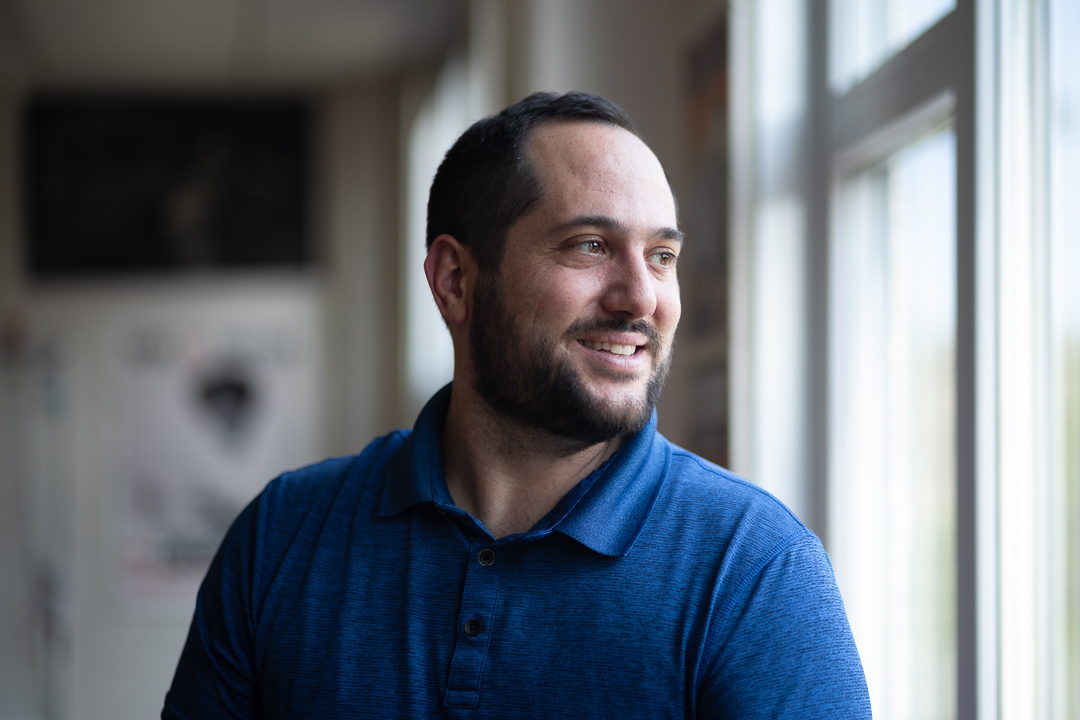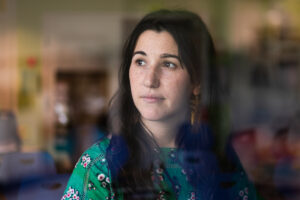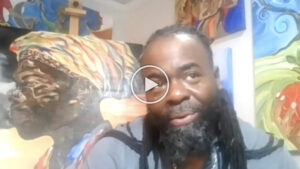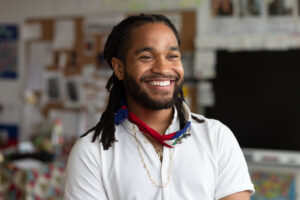I went to Ohio State University. I’d always thought that I would become a lawyer, because my dad was a lawyer growing up — but my mom had been very involved in schools, so I considered becoming a teacher.
Growing up, I saw a lot of teachers making a difference. I volunteered and was able to see a lot of the inequities in school systems by class and not just by race. In college, I began to see this as a global problem of inequity in education. At Ohio State, I got involved with summer camps in the city, and I was able to see firsthand how the same problems developing countries face exist in the United States. A lot of the schools I was involved with had inadequate lunches, little supplies, and low tech, which is a problem some schools struggle with here in DC.
When I was finishing up my degree, I became really motivated to want to do my part to make the world a better place. I thought that it made sense to become a teacher.
I was majoring in political science at the time, and if I had fully changed my major to education, it would have meant an extra year and a half of schooling. So, I applied to the Teach For America program to try an alternate path into teaching, and I was accepted. Then, I went to Detroit to teach and realized the inequities in education were greater than I had previously known.
After that program, I was debating if I wanted to continue teaching and I decided to move back to Columbus to engage politically in numerous causes. I helped to get out the vote in the 2012 election and worked to create an independent commission in Ohio to combat the harm of gerrymandering. Once those campaigns ended, I realized I wanted to teach high school social studies for the long term, and I moved to Ann Arbor to pursue a master’s degree in education.

Growing up as a Jewish American, Jewish culture has always been important to me. My family background certainly influenced a lot of who I am, particularly the supportive and present nature of my mom. The support from her growing up helped me learn to care deeply for other people besides myself. My maternal grandfather also had very passionate political beliefs that shaped my desire to become a teacher.
As a kid, I would always see The New York Times, The Washington Post, and The Wall Street Journal on the kitchen table. It helped me understand the importance of being engaged in the world. The Jewish faith is deeply connected to the concept of Tikkun Olam, which means repairing the world through social change and social justice.
I practice Tikkun Olam through teaching. In DC, I’ve been lucky to teach at two schools that focus on authentic, multidisciplinary, and experiential learning. These schools have allowed me to help students apply their learning outside of the school building and become advocates in solving problems in their communities. Students have developed solutions that range from protecting and restoring the Anacostia River to improving school lunches.
I’ve taught many students who are politically engaged and push my thinking in our class discussions every day. I really love when students question each other and question me. This helps model civil discourse, which is sorely needed in our society today.
We served a lot of English language learners at my previous school. The school focused resources around family engagement to support our first-generation college students. The strong sense of community helped all students to feel and know their voices matter. Looking back, it was incredible to know that there was a real sense of community and a culturally affirming space for students of all identities. Today especially, immigrant families need to be supported and protected, while allowing their children to gain access to a high-quality education. Besides Native Americans, we must remember that we’re all immigrants in the United States.
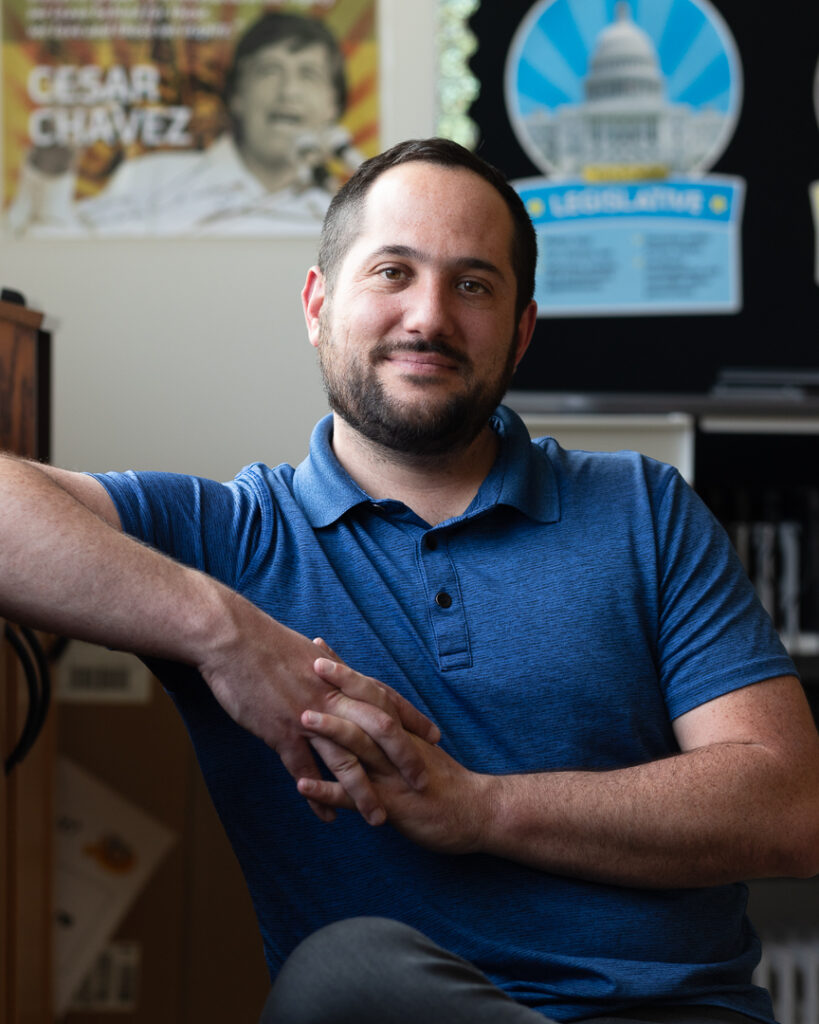
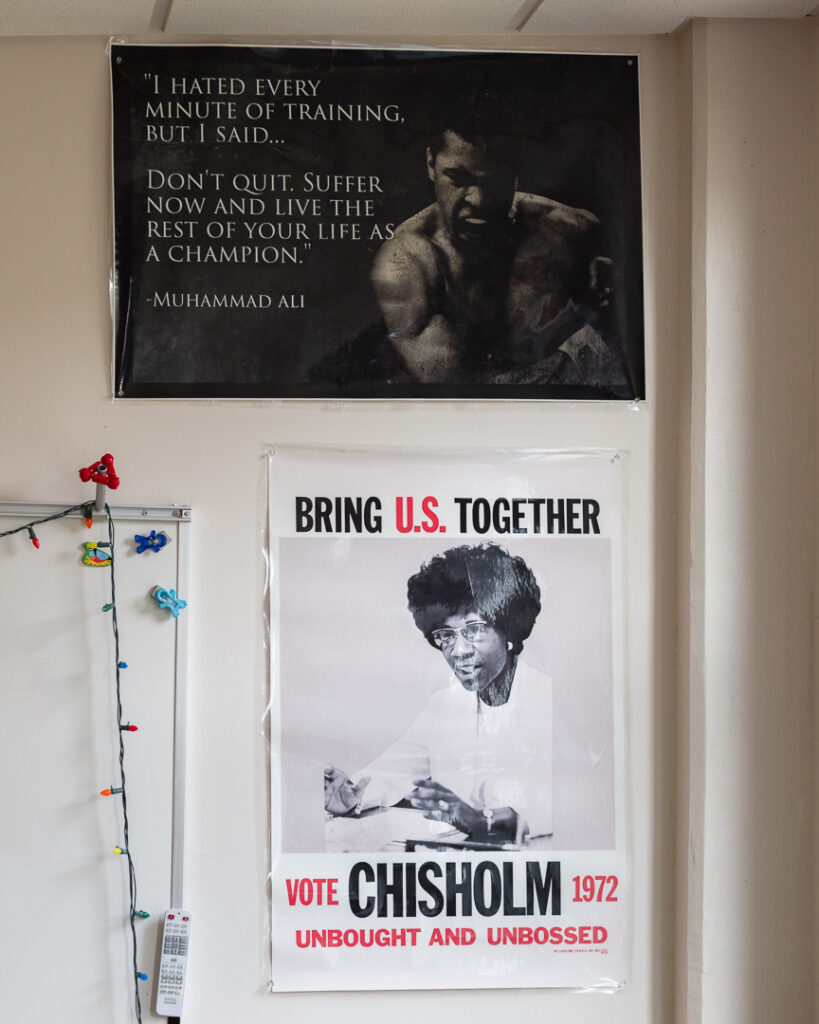
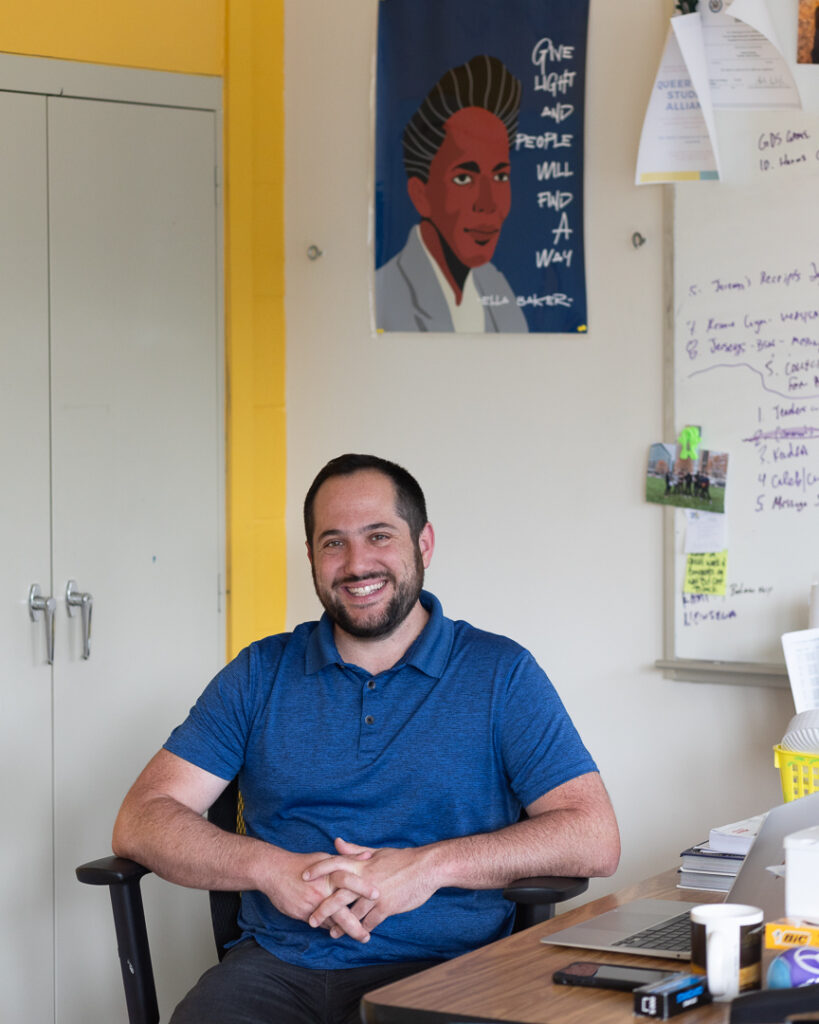
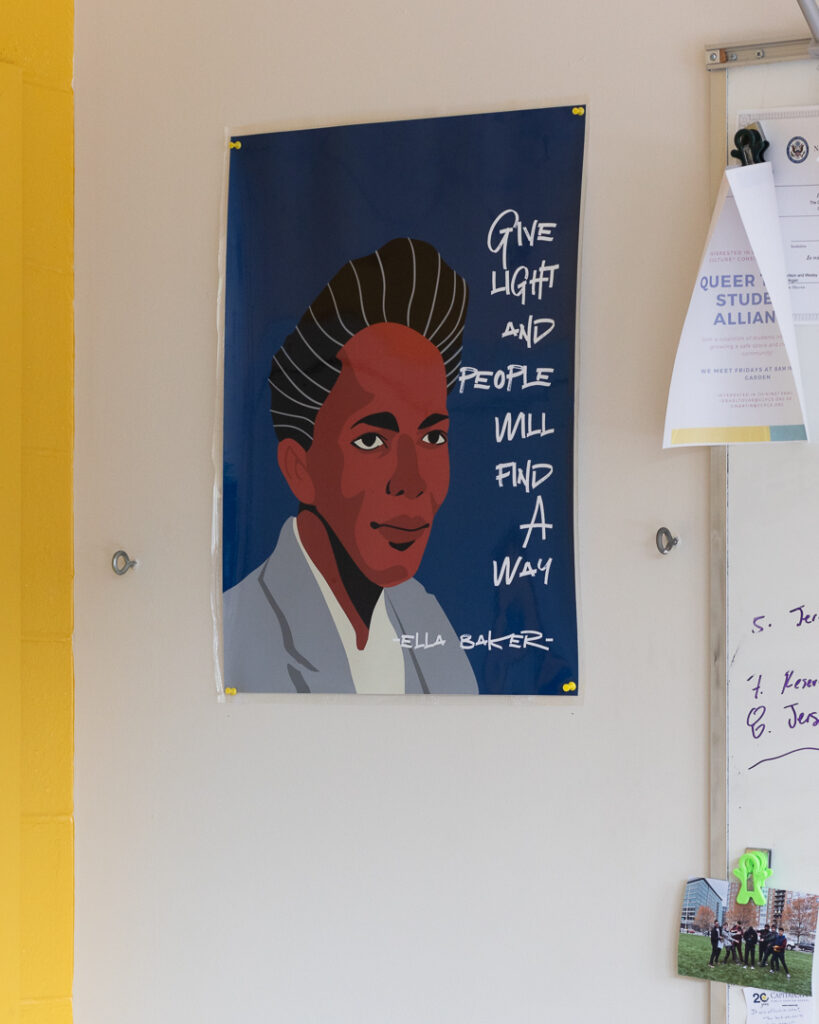
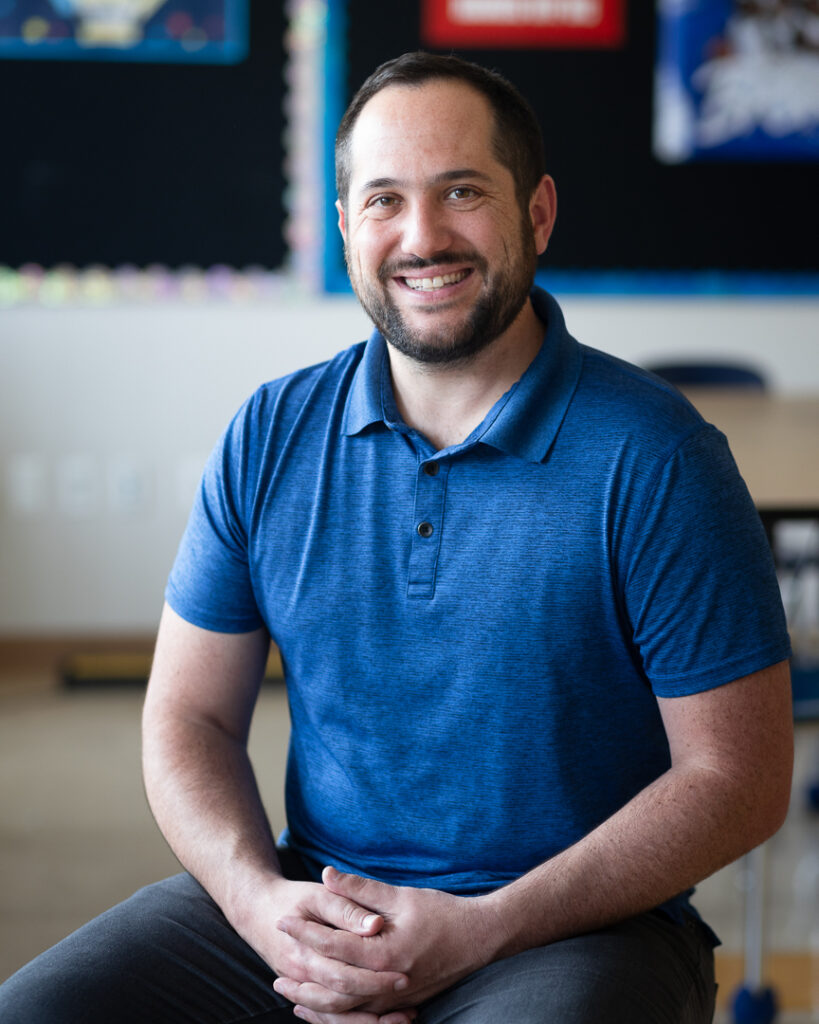
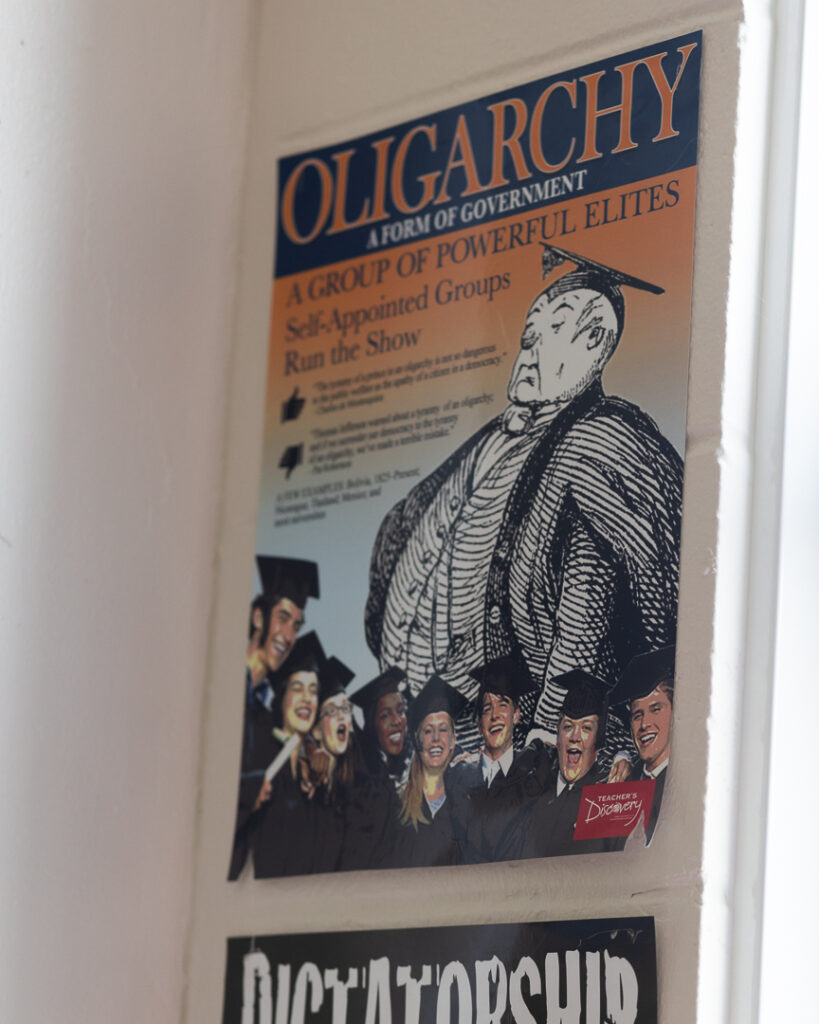
When I moved to DC, I started teaching sixth and seventh grade social studies. I had a great mentor teacher who was incredibly smart and supportive. She helped me learn the ropes of classroom management, lesson planning, and all the basics. Today, as a State Board Member, she’s inspiring my work to expand DC’s teacher mentorship program to support new teachers in DC.
With her help, I was able to design some meaningful projects. For example, we did a project on the history of America’s food systems. Students analyzed the social, environmental, and economic costs of getting foods from Safeway vs. Whole Foods vs. McDonald’s.
We worked with a video production company for students to share their work with a broader audience. The kids wrote the script and produced a show to tell the story. Check it out for yourself!
I also designed learning projects around the abolitionist movement and partnered with incredible local institutions. We worked with the National Portrait Gallery to tell the stories of unsung heroes of the abolitionist movement, especially Black women. The English team and I helped students create a book to tell a more complete story of this incredible social movement in American history.
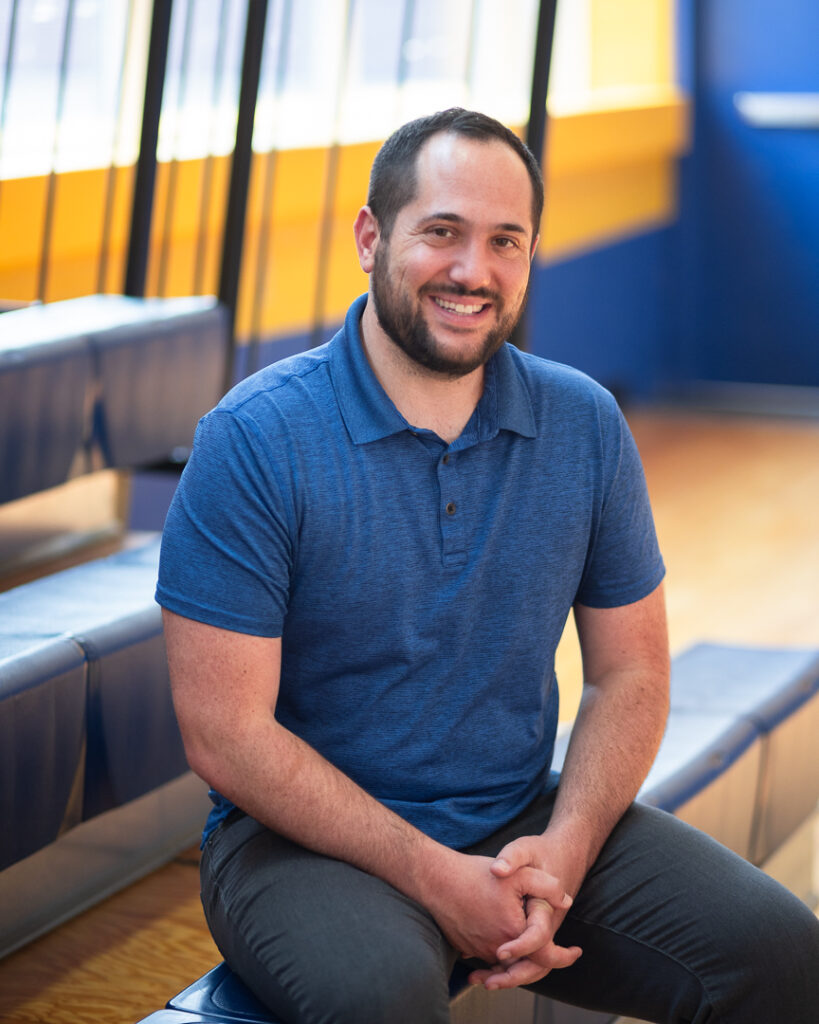
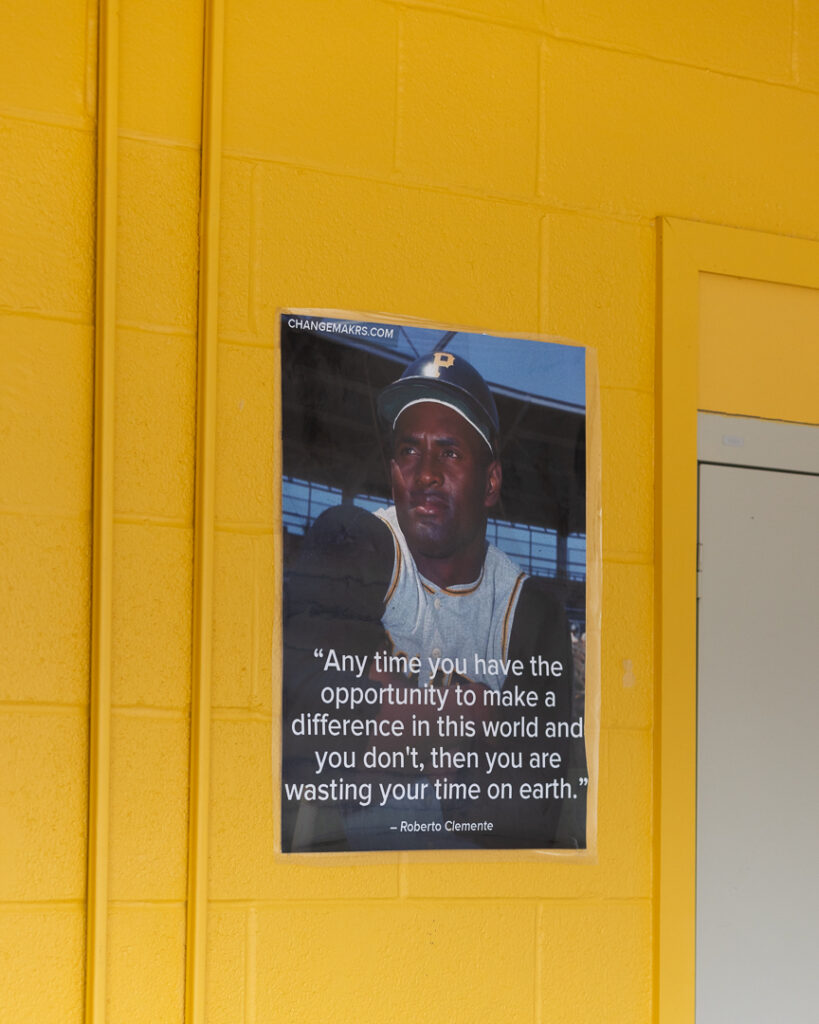
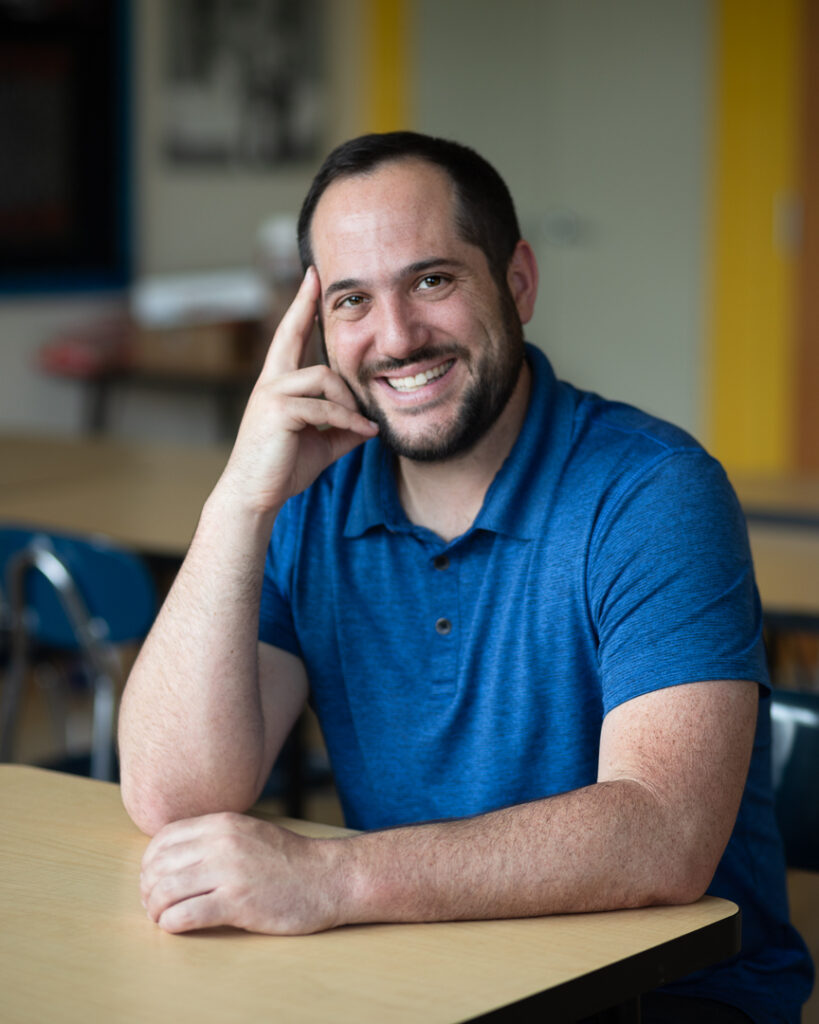
Before running for political office, I was an organizer and policy fellow with an organization called EmpowerEd. We had monthly meetings, planned policy summits, and testified regularly at the City Council. This organization gave me access to an incredible cadre of talented teachers to amplify our voices for the community and for improving DC’s schools. EmpowerEd’s mission is to promote the ideas, well-being, and retention of DC’s educators, amplifying their solutions to create a more just and equitable education system for all DC students and families.
Cities like DC are expensive, and it’s hard to live a middle-class lifestyle here. So, we need to make housing more affordable and improve the working conditions that encourage effective teachers to stay in the classroom.
When deciding to run for a position on the State Board of Education, I gave it a lot of thought to evaluate if I could balance the role with my full-time teaching job. I knew the campaign would be demanding, and it was; but at the end of the day, I saw the role as a continuation of the work that I’d already been doing and an opportunity to have a larger impact.
If we want to have a high-performing school system, we need to attend to the well-being of teachers. I’m grateful for the opportunity that I have on the State Board right now to advocate for what teachers need. In my experience, I’ve seen most policymakers don’t have the urgency needed to improve the job, and in other places across the country, there’s an active agenda to undermine public education. I think we have a responsibility to stand up and fight against that for our kids and for the profession. At the end of the day, research shows teachers matter more to student achievement than any other aspect of schooling. I believe we need to align that reality with how policy treats teachers.
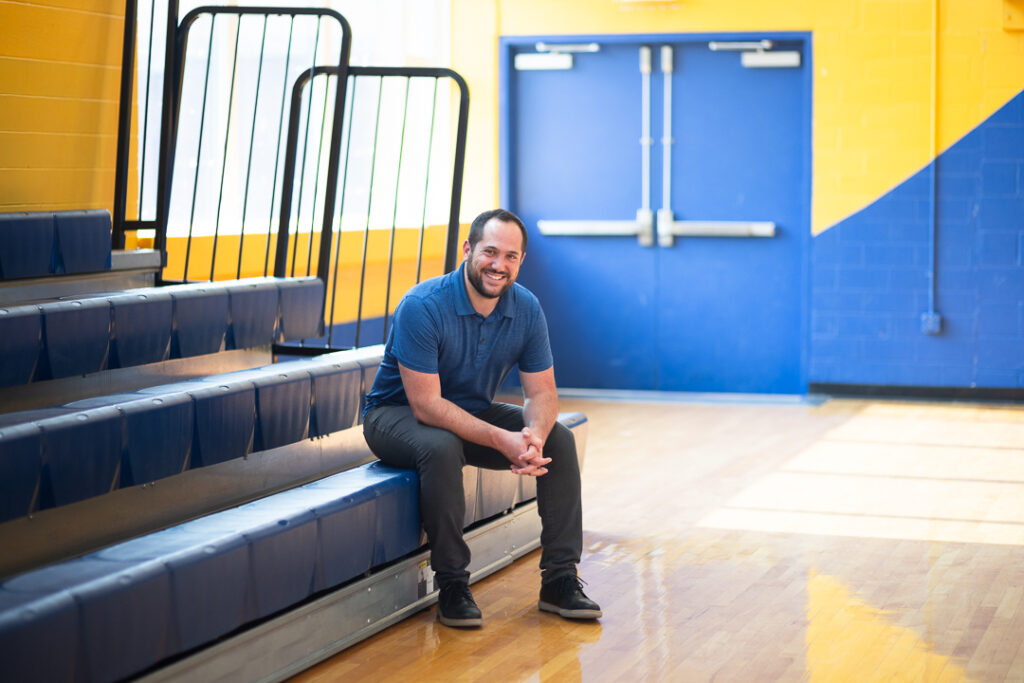
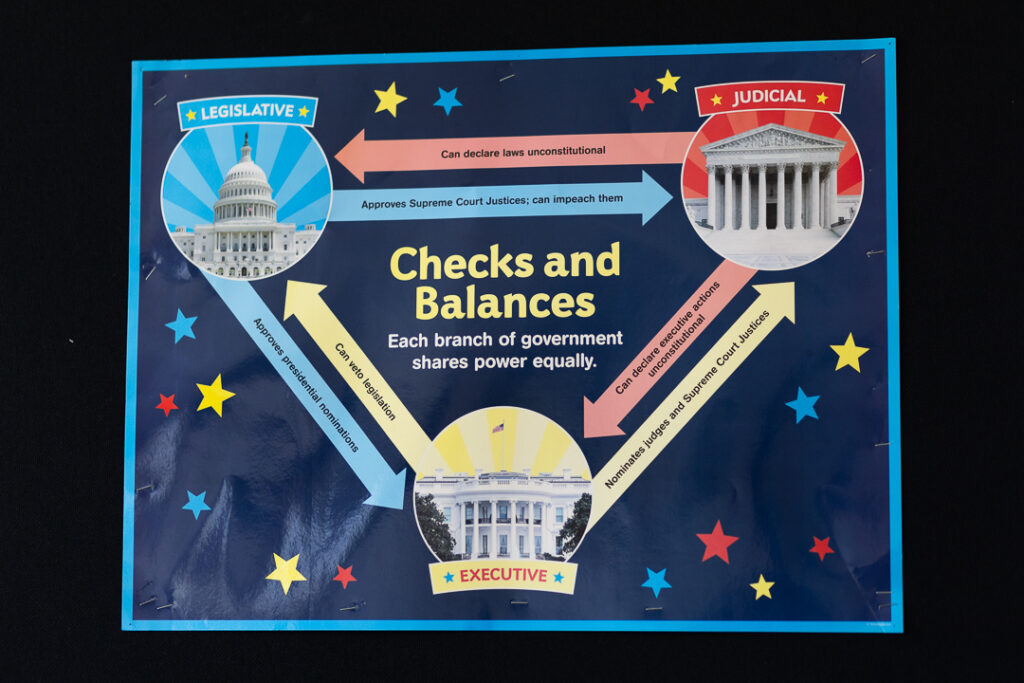
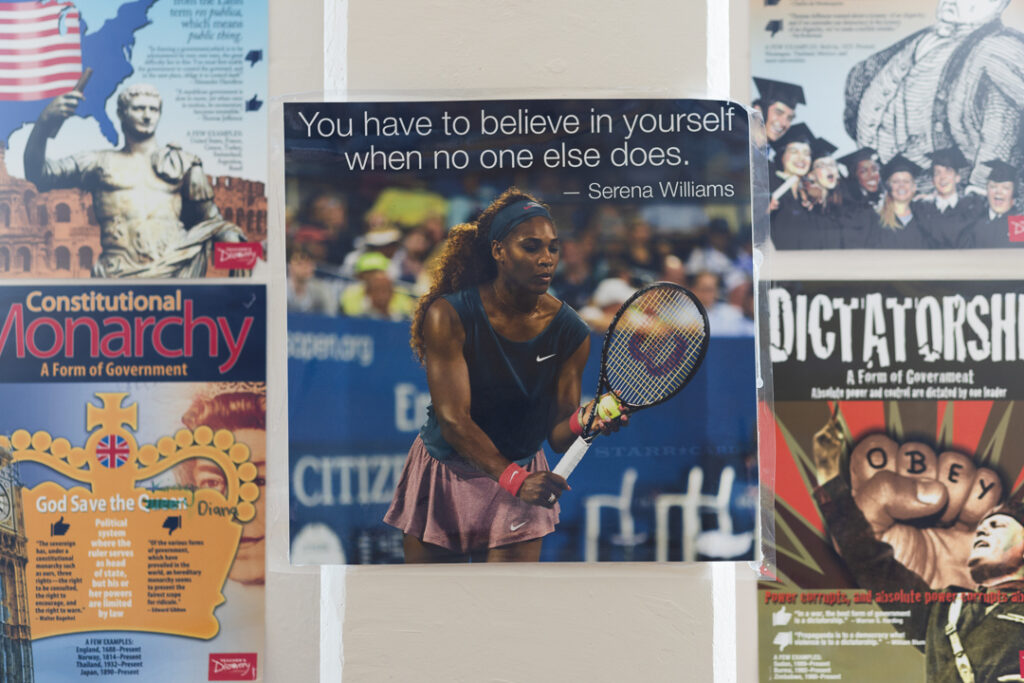
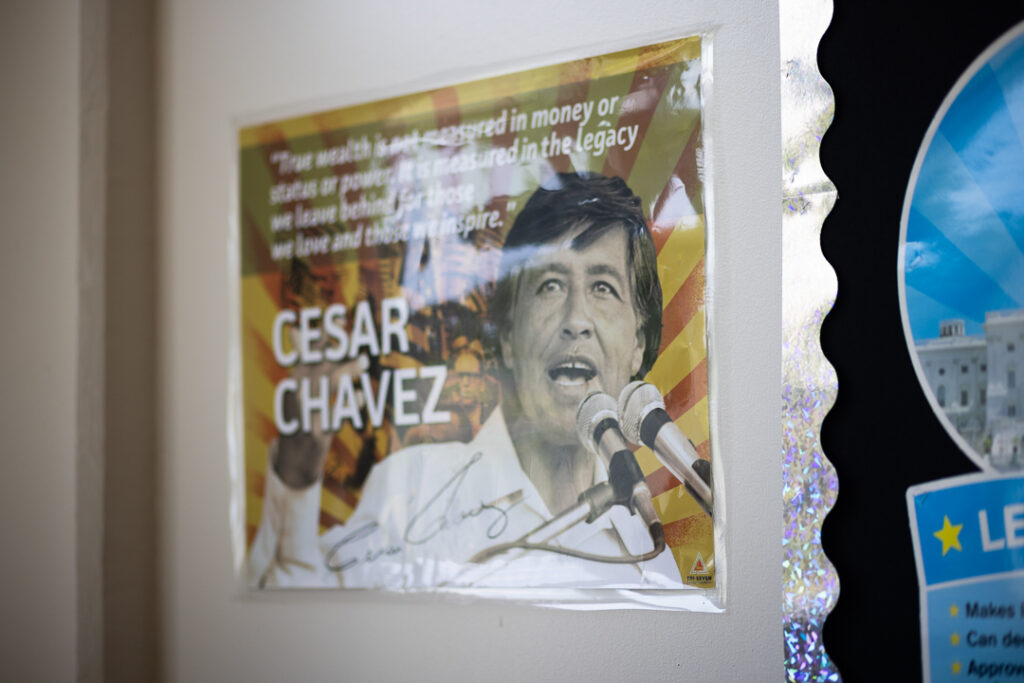
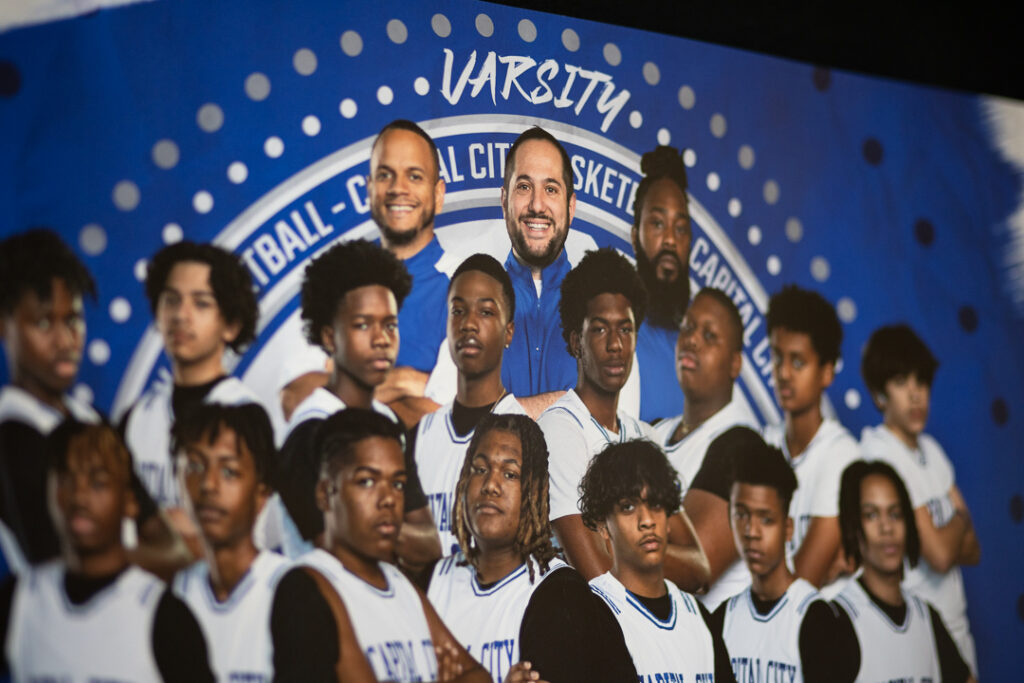
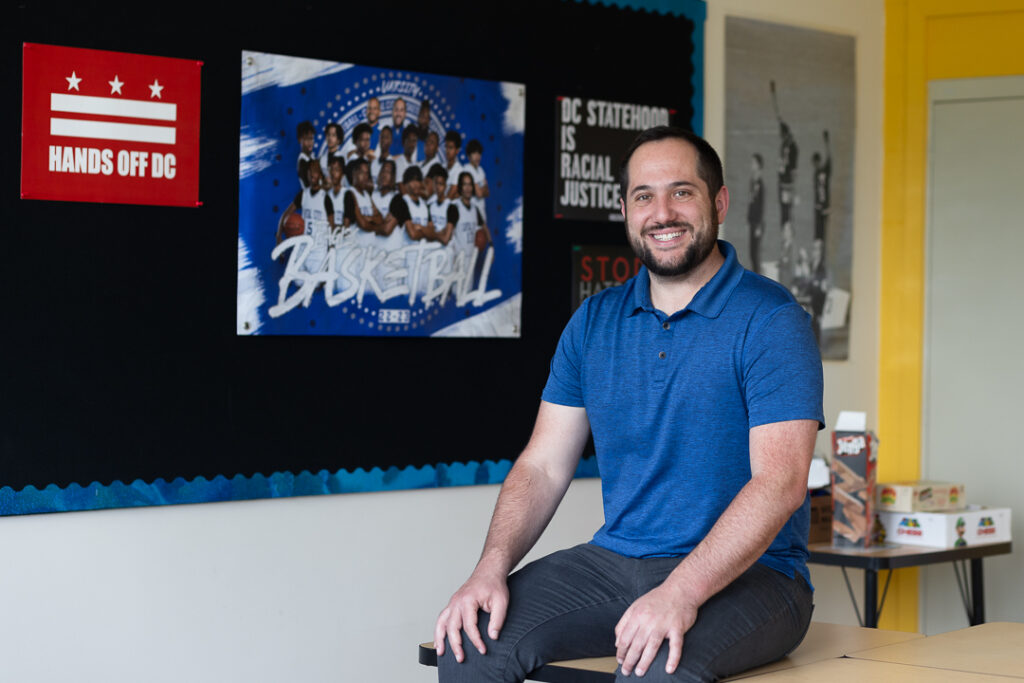
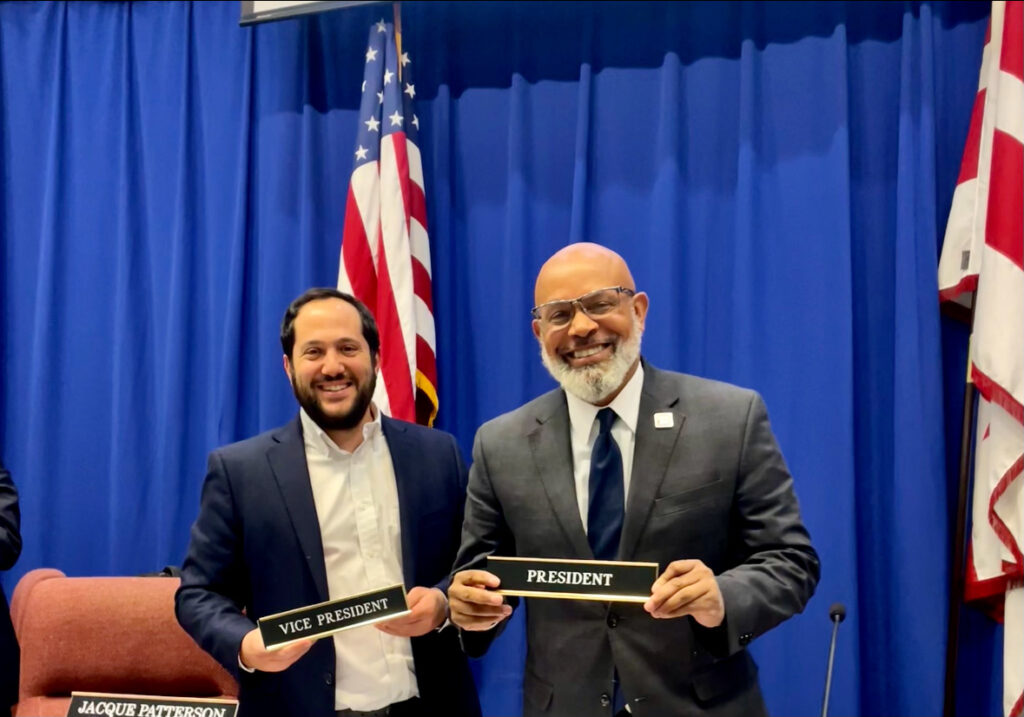
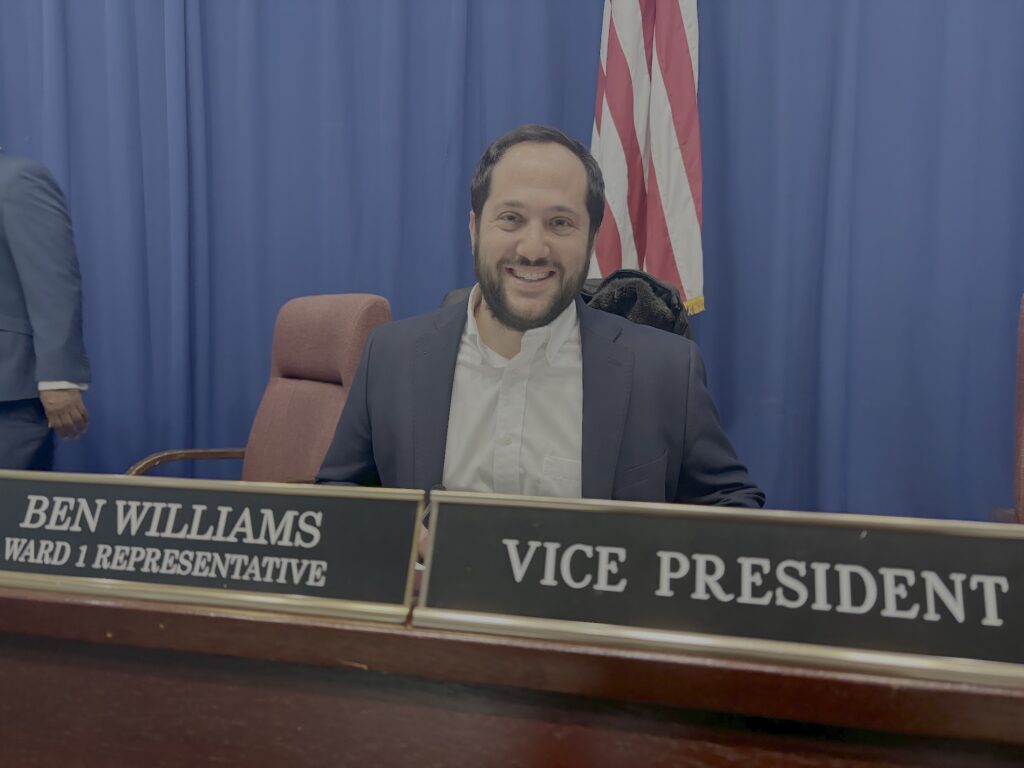
I was sworn into my role on the DC State Board of Education in January 2023. Over the last two years, one key accomplishment has been revising and updating DC’s social studies standards. As a social studies teacher, it was an honor to have a direct say in the revision process and ultimately get a vote to approve the new standards.
We want students to have an honest understanding of our history and to have a global understanding of the world. I’m really proud of the social studies standards that we’ve been able to create and how they set rigorous expectations for students’ learning. The standards focus heavily on democratic principles and processes, which are threatened today both in the US and around the world. We need to be able to have frank conversations so that people can understand why things are the way they are. Our students deserve for our classrooms to be places where students can truly develop critical thinking and learn to be active citizens in the democratic process.
In this role, there are a lot of long nights. Some State Board meetings don’t end until 10 or 11 p.m. It’s been challenging, but worthwhile. I’m really grateful for the opportunity because I can leverage my role and experience and help other board members and city council members understand what needs to change. To me, the work is really motivating and important.
In DC, we currently have a governance system that gives residents a State Board of Education, but not a local school board. In my view, there are adjustments needed to the governance system to create more accountability and transparency. Although it’s good to have a space for public input, people also need to have easier access to their decision makers to create a more responsive system for those affected most. I believe a local school board and a State Board would be best for Washington, DC to achieve one day.
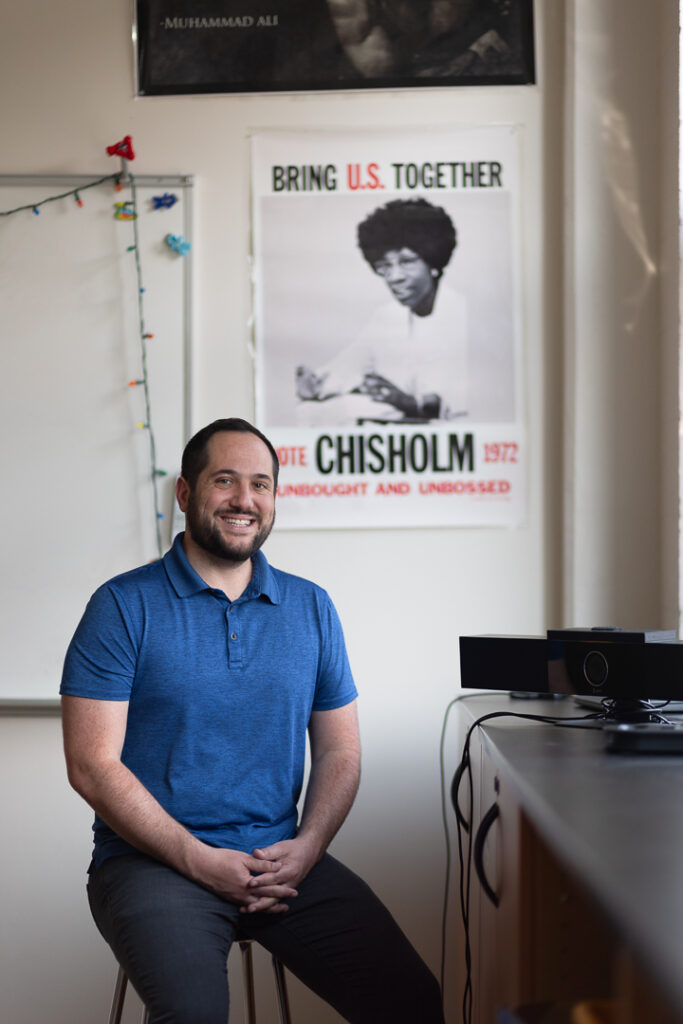
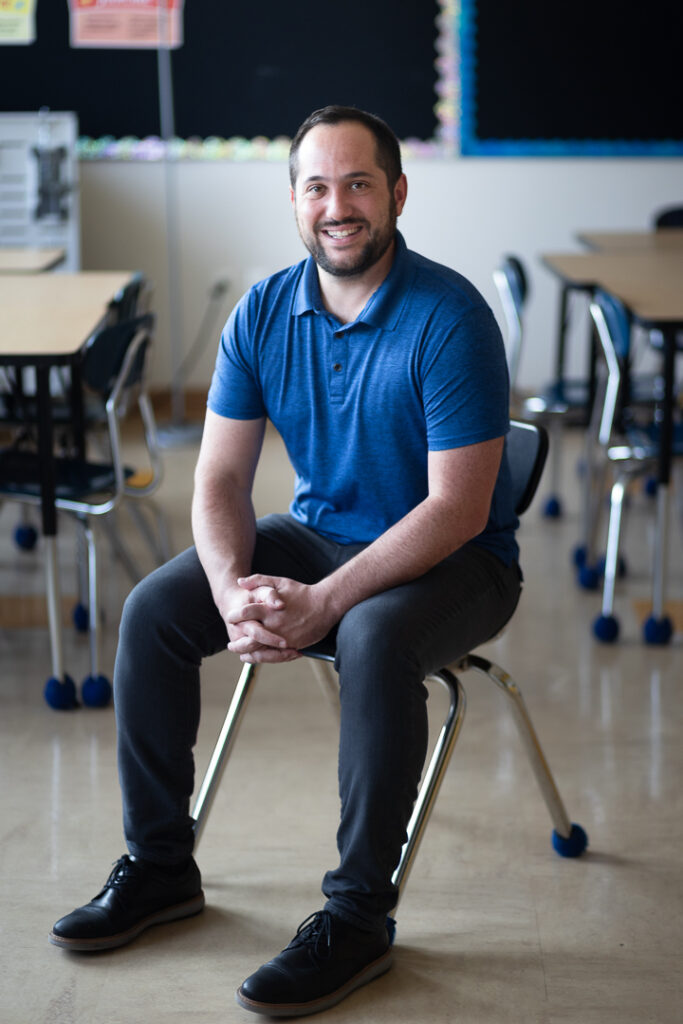
I think that we need to be more responsive to students’ holistic needs. I try to be someone who students feel safe talking with and opening up to. I think our schools should be places where kids want to be and not where they feel like they just have to be. The demands on kids today are significant, and many have so much going on in terms of balancing their schedules. For a student who wants to go to a more competitive school, the pressure is high.
It’s also important to have trauma-informed practitioners — people who understand why a student doesn’t want to do the work or isn’t ready to learn. As we continue to adjust to life after the pandemic, we must recognize that our students and staff have social and emotional needs that need to be addressed on top of just the focus on academics.
I became a teacher because I want kids to love learning and have more access to opportunities in their lives. I believe the purpose of schooling should be to question things freely and build off of students’ natural curiosities. I work hard to provide students a safe space to grow holistically.
In my classes, students have analyzed local climate change, gun violence, gentrification, food insecurity, housing insecurity, issues of digital equity, and how to make college more affordable. There are so many challenges that this generation has on their plate. There aren’t simple answers. I think they need to know that they’re not in it alone and that when we work well collectively we can tackle seemingly insurmountable odds. I also want students to know that when they organize, and when they gain support from each other, we can protect, provide for, and keep our communities safe.
We have to figure out how to work together to create a cohesive education system that is student-centered and teacher-centered. We have too many people making decisions who are too disconnected from what’s happening on the ground every day. That’s not a good way to make informed policy. I believe policies are most effective when those impacted by them have a seat at the table.
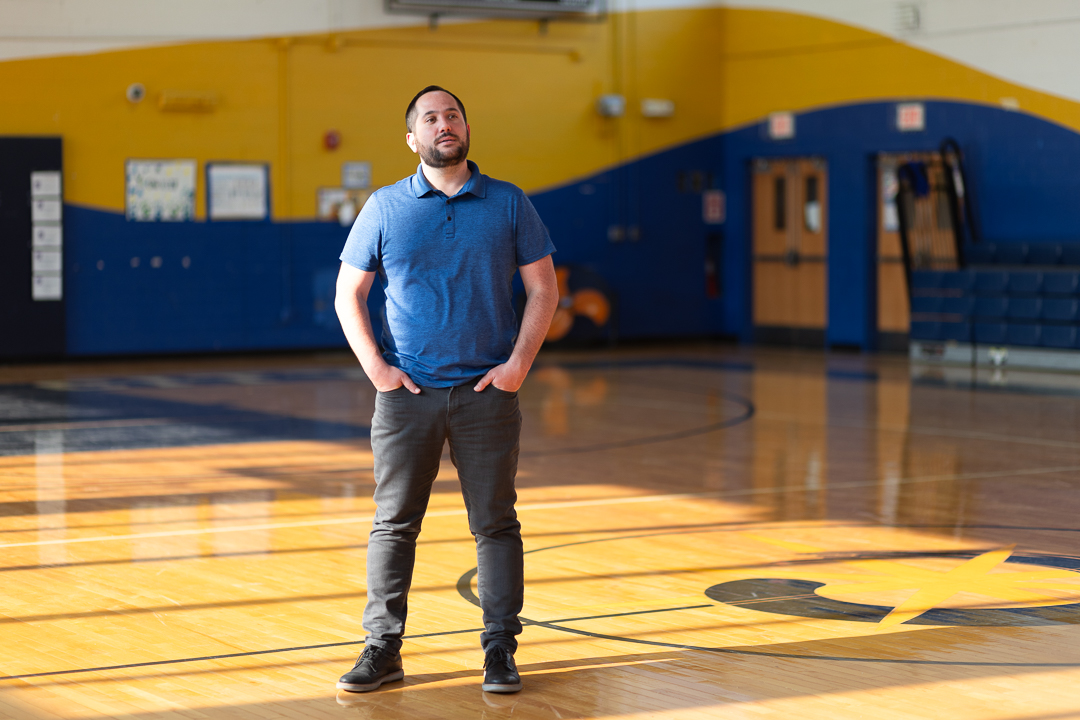
As a teacher and State Board representative, I work to amplify students’ voices by connecting them with public forums that can address their concerns. My students have testified at State Board meetings and City Council meetings.
Last year, I supported one student in testifying on a public safety panel at the State Board of Education. It was incredibly powerful to hear her speak and answer questions from other Board members. She said that there needs to be better communication between public transit agencies and students to ensure they are informed and safe in getting to and from school each day. She highlighted the need for there to be better communication between schools too. There was a shooting at the school half a mile from us, and the system didn’t communicate anything to students at our school as they were walking home. That’s a problem.
This example highlights my philosophy as an educator and an elected representative. Schools should be places of empowerment for students. We need to see tangible improvements in our schools to improve school culture and outcomes. I’m committed to doing my part. In both my roles, I will continue to encourage students to be the change they want to see and to use their voices and skills to make that change happen.
–Ben Williams
Teacher in DC Public Schools
Washington, DC
